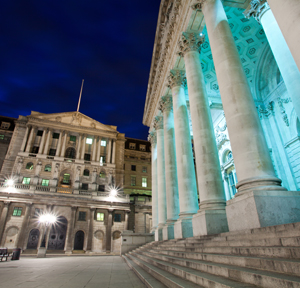Uncategorised
The FCA Barclays fine: a few details

The UK's financial regulator has awarded Barclays its largest penalty yet for failures related to financial crime control. The bank failed to conduct sufficient checks on ultra-high net worth clients.
Barclays has had to pay a financial penalty of £72,069,400, of which £52.3 million is reckoned to be the profit from its misconduct, and a penalty of £19,769,400, for breaking the FCA's very vague principle 2 (which calls for "due skill, care and diligence"). It is being punished for events that occurred between May 2011 and November 2014.
The London-listed banking giant arranged a £1.88 billion transaction for these clients in 2011 and 2012 without being 'duly diligent' towards them. The Financial Conduct Authority said that those wealthy clients were “politically exposed persons” and therefore should have been subjected to greater scrutiny.
Barclays did not follow its standard procedures and instead took on the clients as quickly as possible, generating £52.3 million in revenue. The regulator added that the bank, which kept details of the transaction strictly confidential, overlooked “obvious red flags” because it did not wish to inconvenience the clients. The FCA made no finding that financial crime was involved or facilitated by Barclays.
The fine is an embarrassment for the bank, having been punished in June 2012 for manipulating interbank interest rates (LIBOR). In May this year it was fined yet again, along with other banks, for rigging the global foreign exchange market. The LIBOR scandal led to the resignation of the bank's chief executive, Robert Diamond, in late 2012. Last year, the bank carried out a large restructuring operation. Diamond's successor was Antony Jenkins, who was ousted from his post earlier this year as a result of demands from non-executive directors for faster change.
When the bank asked the politically exposed persons to explain their source(s) of wealth, Barclays allowed itself to be fobbed off with a vague reference to 'landholdings, real-estate and business and commercial activities'. It sought to verify this by nothing more than a few printouts of Internet searches, presumably from Google and similar search engines. It did not obtain independently verified documents that contained good evidence of the clients’ sources of wealth such as evidence of titles, copies of trust deeds, audited accounts and/or bank statements. It did not, despite the dictates of its internal procedures, make a referral to the relevant Barclays risk committee, use Barclays’ internal risk experts to conduct any detailed analysis, or commission an independent third-party intelligence report to fill in any gaps in its understanding of the amount of wealth that the PEPs held. The standard of 'extra/enhanced due diligence' or EDD (required by regulations whenever there is a PEP) that it applied was lower than it was for other clients - even those who were not considered to be 'sensitive PEPs' and who wanted to undertake far smaller transactions.
Interestingly, in its final notice, the FCA goes out of its way to mention the self-justification that Barclays staff used to avoid asking the PEPs detailed questions - they claimed not to want to 'irritate' them. After this fine, it is unlikely that any British bank will ever attempt to use this excuse when talking to the regulator again. This reticence extended even to the provision of verifying documents themselves. Barclays did not bother to obtain a full copy of the relevant trust deed from the PEPs, even though they themselves had agreed to change it at Barclays' request. The changes, moreover, involved data about the ultimate beneficial owners of the proceeds of the transaction and the circumstances in which the beneficial owners could change - a crucial AML control.
